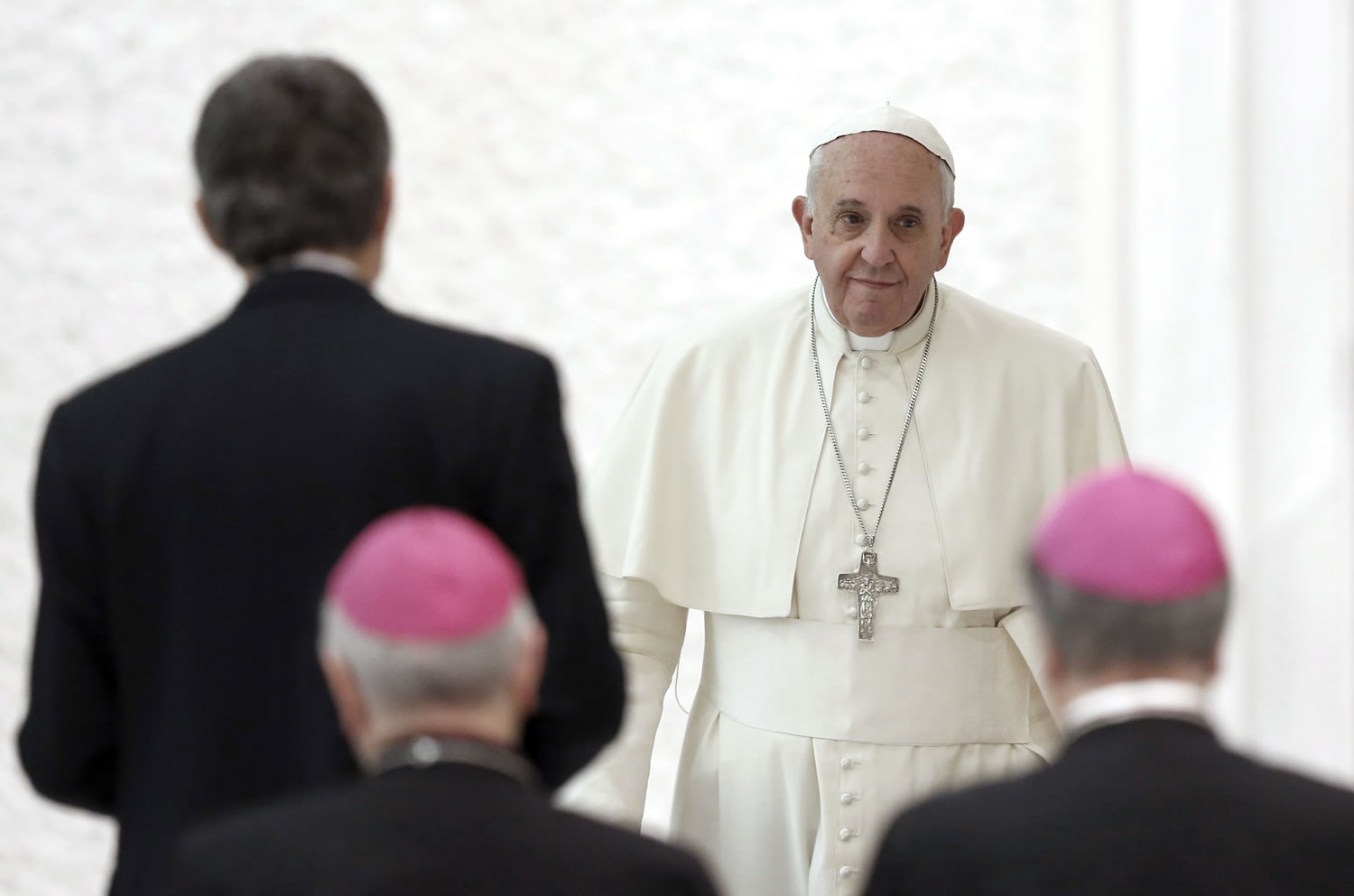VATICAN CITY — The crucial role played by Pope Francis in bringing Cuba and the United States together signals that history’s first Latin American pope has no qualms about putting the Holy See on the front lines of diplomacy, especially for a cause it has long championed.
The Vatican said Wednesday that Francis wrote to President Barack Obama and Cuban President Raul Castro in recent months and invited them to resolve their differences over humanitarian issues, including prisoners.
In addition, the Vatican hosted U.S. and Cuban delegations in October “and provided its good offices to facilitate a constructive dialogue on delicate matters, resulting in solutions acceptable to both parties,” the Vatican said.
In his announcement, Obama referred twice to Francis and thanked him for his involvement, saying his “moral example shows us the importance of pursuing the world as it should be, rather than simply settling for the world as it is.”
Indeed, Francis has shown he is willing to use his popularity and moral authority to do the unthinkable for a good cause. This past June he invited the Israeli and Palestinian presidents for a day of peace prayers at the Vatican, and before that agreed to requests to help facilitate talks between the Venezuelan government and opponents.
Such Holy See interventionism harks back to the papacy of St. John Paul II, who is credited with having helped bring down communism in his native Poland by encouraging the Solidarity movement.
John Paul in 1978 also sent an envoy to help Francis’ native Argentina and Chile reach a compromise on a territorial dispute. The two countries had been on the brink of war over the Beagle Channel and its islands.
The Vatican under Emeritus Pope Benedict XVI kept a low diplomatic profile, but during his 2012 visit to Cuba, Benedict voiced the Vatican’s long-standing position that it believed the U.S. embargo was unjust and only hurt the most vulnerable on the island.
U.S. Ambassador to the Holy See, Kenneth Hackett, said in a statement to The Associated Press that a senior Vatican official had met with both sides “to help bring the negotiations to a successful conclusion.” He didn’t name the official.
Francis’ top diplomat is Vatican Secretary of State Cardinal Pietro Parolin, until last year the Vatican’s ambassador to Caracas. Given his experience in the Caribbean, Parolin’s role in the U.S.-Cuba rapprochement was believed to have been crucial to the deal.
The archbishop of Miami, Thomas Wenski, said that in bringing the two sides together, Francis did what popes are supposed to do: “build bridges and promote peace.”



